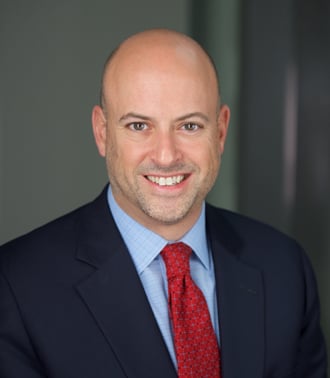Lit Alerts—August 2018
Class Actions: Judge Denies Class Certification in NHL Concussion Lawsuit
In July, the United States District Court for the District of Minnesota denied class certification to a proposed class of retired NHL hockey players who alleged that the NHL knowingly failed to warn them of the potentially harmful effects of the concussive and subconcussive impacts they sustained during their playing careers. The players are seeking medical monitoring for symptoms of neurological disorders.
The court rejected the players' argument that the class could be certified under FRCP 23(b)(2), which permits class actions seeking common injunctive or declaratory relief, because it found that the plaintiffs' medical monitoring remedy was "predominantly monetary in nature," rather than injunctive. The court instead agreed with the NHL that certification must be analyzed under FRCP 23(b)(3), which requires a finding by the court that common questions of law or fact predominate over questions affecting only individual members.
District Judge Nelson held that the putative class could not meet this standard under the "rigorous analysis" required by Wal-Mart Stores, Inc. v. Dukes, 564 U.S. 338, 348 (2011). The court rejected the players' argument that, because the NHL's headquarters are in New York, legal liability could be determined as a matter of New York law with respect to every player's claim. It also rejected their argument that, because the players had sued in Minnesota, Minnesota law applied to each player's proposed medical monitoring relief.
Instead, the court applied Minnesota conflicts of laws principles and held that liability and relief issues must be determined by the laws of the states where the players spent their careers or are currently domiciled. Finding that these laws differ materially from state to state, the court held that the players' common legal issues did not predominate for the purposes of certifying a Rule 23(b)(3) class.
White Collar: Eastern District of New York Dismisses Foreign Corrupt Practices Act Case as Time Barred Despite Tolling Agreements in Effect
On July 12, 2018, the US District Court for the Eastern District of New York dismissed civil claims brought by the Securities and Exchange Commission (SEC) against two former hedge-fund executives, Michael L. Cohen and Vanja Barros. In its initial complaint filed in January 2017, and an amended complaint filed in May 2017, the SEC alleged, among other things, that both defendants violated the anti-bribery provisions of the Foreign Corrupt Practices Act (FCPA). The complaint detailed nine allegedly corrupt transactions, including but not limited to two transactions specifically related to projects in Libya. All of the allegedly corrupt transactions occurred between May 2007 and April 2011. As relief, the SEC requested civil penalties, disgorgement of allegedly ill-gotten gains, and a permanent injunction barring defendants from violating these provisions in the future.
Defendants moved to dismiss and argued, among other things, that the claims were time-barred. The SEC argued, among other things, that the claims against Michael L. Cohen were timely because they were based on the four most recent transactions alleged, for which Mr. Cohen agreed to toll the running of "any statute of limitations applicable to any action or proceeding against [him] authorized, instituted, or brought by or on behalf of the [SEC] or to which the [SEC] is a party arising out of the investigation . . . including any sanctions or relief that may imposed therein." Securities and Exchange Commission v. Cohen, No. 17-CV-00430, at *1 (E.D.N.Y. July 12, 2018) (citing tolling agreements) (emphasis in original). Each of the tolling agreements Mr. Cohen entered into with the SEC defined "investigation" as the SEC's investigation In the Matter of Libyan Investment Authority (LIA Investigation). However, the four most recent transactions were related to a separate investigation.
The SEC took the position that, because its entire investigation "arose from its LIA [I]nvestigation, Mr. Cohen agreed to toll the statute of limitations with respect to all transactions alleged in the amended complaint, not just those relating to the LIA Investigation." Applying contract law to the tolling agreements, the court held that they did not apply to the SEC's claims because they were based on transactions other than those at issue in its LIA Investigation. According to the court, "[i]t is implausible that the parties manifested their intent to toll the statute of limitations with respect to claims arising from [a] separate investigation by referring only to the LIA [I]nvestigation." Thus, the court ruled that the SEC's claims were untimely and granted defendants' motion to dismiss.
© Arnold & Porter Kaye Scholer LLP 2018 All Rights Reserved. This newsletter is intended to be a general summary of the law and does not constitute legal advice. You should consult with counsel to determine applicable legal requirements in a specific fact situation.





